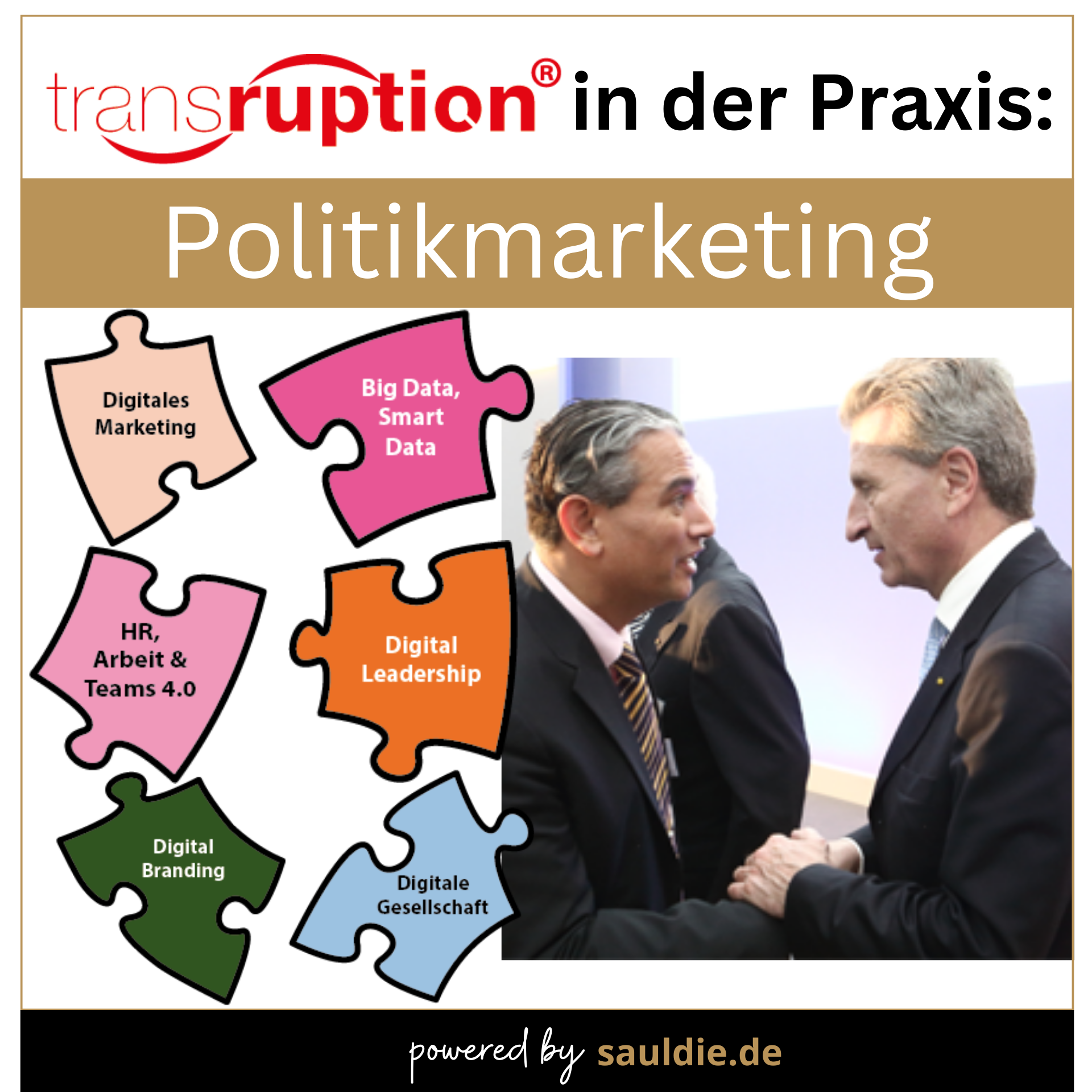Politics has always had the same goal: power. Even if there is a separation of powers in our democracy and no individual can rule over the heads of the population, politics is still an exercise of power. Classically, election campaign management and political advertising are aimed at "gaining power". This idea is deeply rooted in the minds of voters and has led to a crisis of democracy in the first place. In addition, a lack of political marketing on the internet has led to a situation where opinion is formed on social networks, but politicians and parties have recognised this trend too late and have so far failed to align themselves with it.
Although opinions are largely formed online, no opinions are given by parties, as there is a widespread lack of political marketing on the internet and political advertising and traditional political marketing has not considered the need for election campaign management on the internet for too long. Thus, in the crisis of democracy, there is a wide gap in communication between you as a politician, your party and the citizens or potential voters. As a result, the people have always had the impression that politicians govern without taking the interests of the citizens into account and show little or no concern for them. This is also largely due to the political system itself. While some neighbouring countries have a political system that allows their citizens to intervene directly in politics through direct elections and referendums, Germany lacks such options. This means that the only way to intervene in politics in Germany is to elect trustworthy politicians and parties whose objectives are in line with one's own wishes. In order to regain the trust that has been lost in the crisis of democracy, modern political marketing must distance itself from the actual goal of exercising power.
Political advertising and your campaign management must signal genuine interest in individual citizens. Political marketing on the Internet is certainly not the solution to all problems, and it will certainly not solve the crisis of democracy, but reorganised political marketing with campaign management on the Internet and appropriate political advertising is certainly a step in the right direction. Political marketing on the Internet at least creates a much greater proximity to a large number of citizens. In addition, you as a politician and your party can use appropriate marketing strategies to reach young people in particular, who otherwise have little or no enthusiasm for politics, even though they see and recognise the grievances in Germany and the world, but whose trust in politics has been so distorted "from an early age" that they hardly feel the need to listen to your views as a politician and the values you represent.
However, modern political marketing does not simply consist of a small and hidden profile on Facebook or Twitter, which only exists to suggest proximity to the people. Rather, it is essential that you actively use the opportunity for proximity and seek dialogue with potential voters, as this will give you real and true-to-life feedback on your election programme.


























